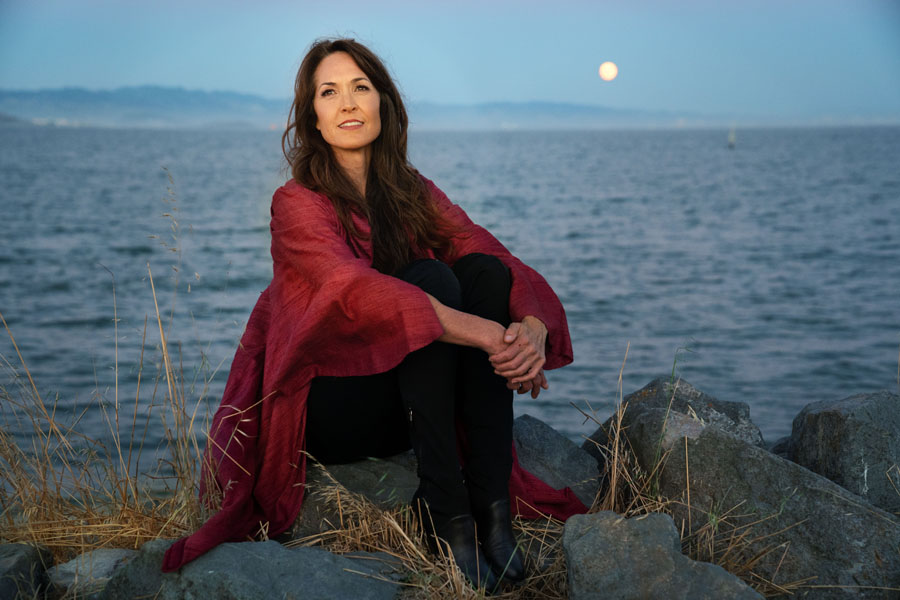
The Unchosen Path
When my husband Robin Williams died, the whole world grieved. It’s enough to grieve personally over this type of loss, and then to have the entire world grieving with you—that pushed it into a different realm altogether. I created a kind of tunnel vision to let in what mattered most and block out the rest so as to focus on what I had to do. I had to get to the bottom of what we had just gone through, not only for Robin, but also for me.
Robin and I had been chasing symptoms with our medical team’s care for nearly a year with very little gain. During that time he was confronted with anxiety, paranoia, insomnia, scary altered realities and a roller coaster of hope and despair. He experienced nearly all of the 40+ symptoms of Lewy body disease (LBD) without knowing that’s what it was. He battled hard, I know, because I fought alongside him. A short time after the Parkinson’s (PD) diagnosis was made, Robin and I knew there had to be something more going on. It wasn’t until autopsy that the source of Robin’s terror was revealed: he had diffuse Lewy body disease. Nearly every region of his entire brain and brain stem was taken up with the Lewy bodies.
I had never heard of LBD before—knew nothing about it, but I finally had a name. I gathered my husband’s last 2 years of medical records, brain scan, and coroner’s report and sent them to 4 medical professionals in neurocognitive degeneration and specialists in LBD. I spent time with these doctors and learned as they translated the facts for me. I found out from all of them, that Robin’s case was extreme, one of the worst they had seen. I learned that clinically Robin had Parkinson’s—that diagnosis was correct. Pathologically he had diffuse Lewy body dementia. I learned that LBD and PD are on a disease spectrum and that they have the same essential underlying shared biology—that is the Lewy bodies themselves. I continued meeting with specialists and with each new bit of information learned I felt compelled to learn more. It was easy to understand why this disease is so difficult to diagnose and why there is no cure—yet.
Learning the science behind what Robin experienced brought more healing than I ever could have imagined. And it fired up an urgency in me to assist the researchers and doctors in whatever way I could to help them go after this brain disease. I shared our experience publicly. The American Brain Foundation (ABF) reached out and awarded me with their Commitment to Cures Award for raising awareness of Lewy body disease. When I accepted that award and told our story to a room full of neurologists, my path was forever changed. I found out that the ABF’s mission of connecting donors to researchers and curing brain disease was in alignment with my own vision and hope. I have now served five years on their board of directors and I am currently their Vice Chair. In 2016 Neurology, a publication of the American Academy of Neurology, asked that I write an editorial discussing my experience with LBD from the spouse and caregiver point of view. In it I discuss our experience and correlate the science behind the symptoms. It’s titled, “The terrorist inside my husband’s brain.” Little did I know that it would become the #1 most read article of all time in Neurology and that it would be used in some psychology and neurology courses around the world. At the American Brain Foundation we have established a Lewy Body Dementia Fund that supports, among other things, a $5 million dollar research grant award targeted at finding a biomarker for LBD—leading to accurate diagnosis and treatment. I cannot wait to see that fully funded so we can support a brilliant researcher and her/his plan. I have spoken at many academic institutions as well as private corporations, toured labs and seen some of the latest research being done. I joined forces with the AAN and Michael J. Fox Foundation in Washington DC to help raise awareness among lawmakers for the need to achieve better diagnosis and increase research funding. I continue to work on special policy projects in California. During the last several years I worked on a film, ‘Robin’s Wish’, centered on Robin’s final years and his experience with LBD. There will be an educational version of ‘Robin’s Wish’ available to help aid institutions in raising awareness and funds for solving LBD.
Robin and I walked an Unchosen Path and although we met late in life, for us it was right on time—we were perfectly prepared for the love we shared and for this experience. And we were lucky enough to have each other all the way through—even on the frontlines. I know now that getting to the bottom of what we went through wasn’t just for Robin, or for me. It was for something much bigger.
I believe in Robin and in the Divine Calculations of the Universe. I also believe in the wonder of the 3 lb. electro-chemical miracle we are all carrying around in our heads. I believe that Robin’s death in this battle against these brain diseases holds a profound purpose. There was tremendous power in what he suffered and I saw that terrible power up close. I am doing what I can to see that power transformed into something good.

Susan Schneider Williams
May 14, 2020
As a result of my commitment to support ongoing efforts in finding diagnostics, preventions, and ultimately cures, a portion of all print proceeds goes to support Lewy Body Dementia and related brain disease research.